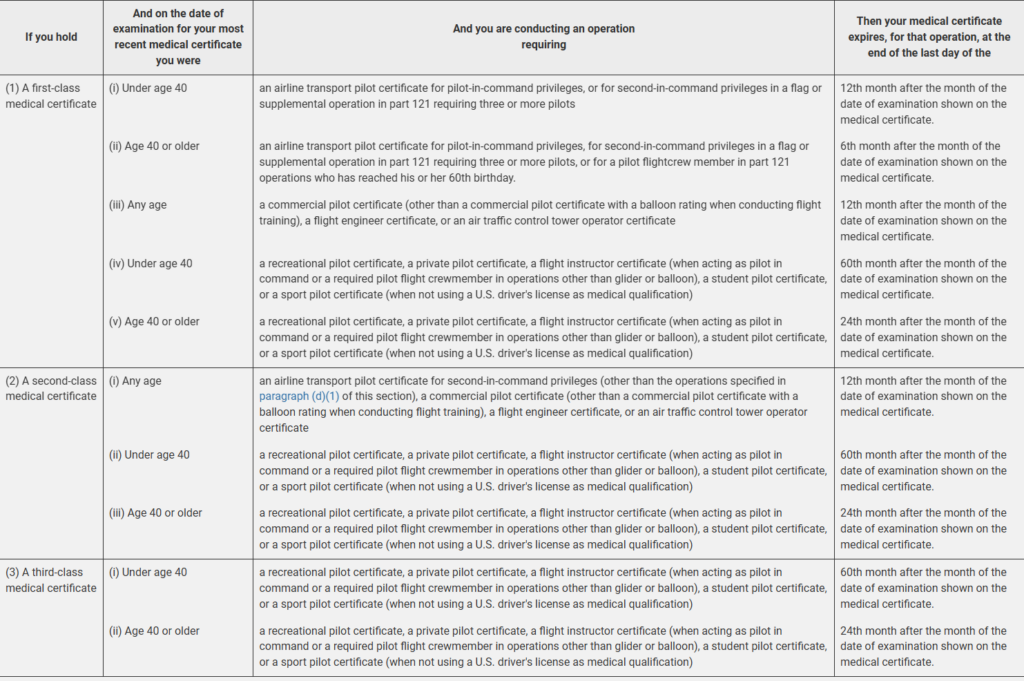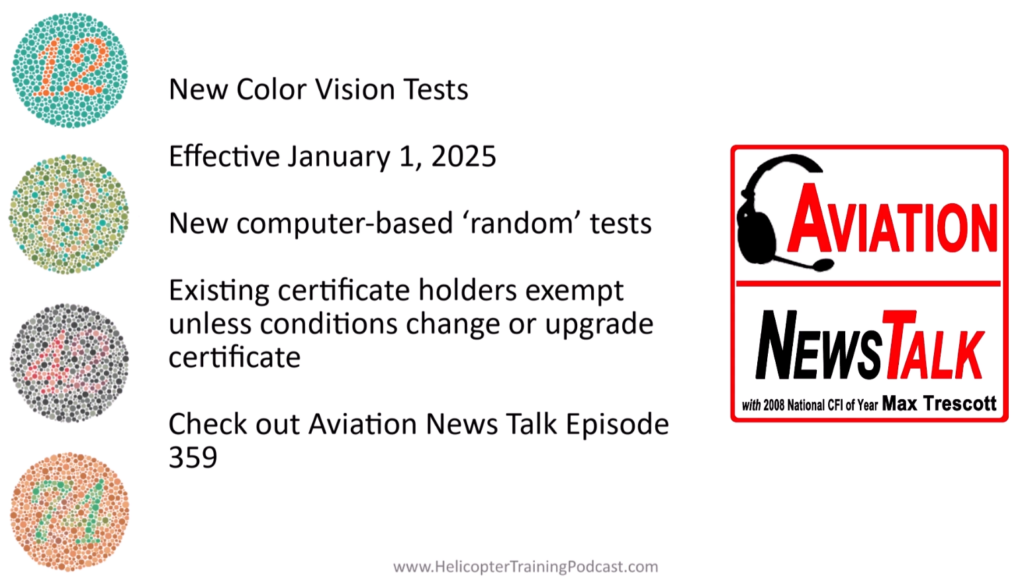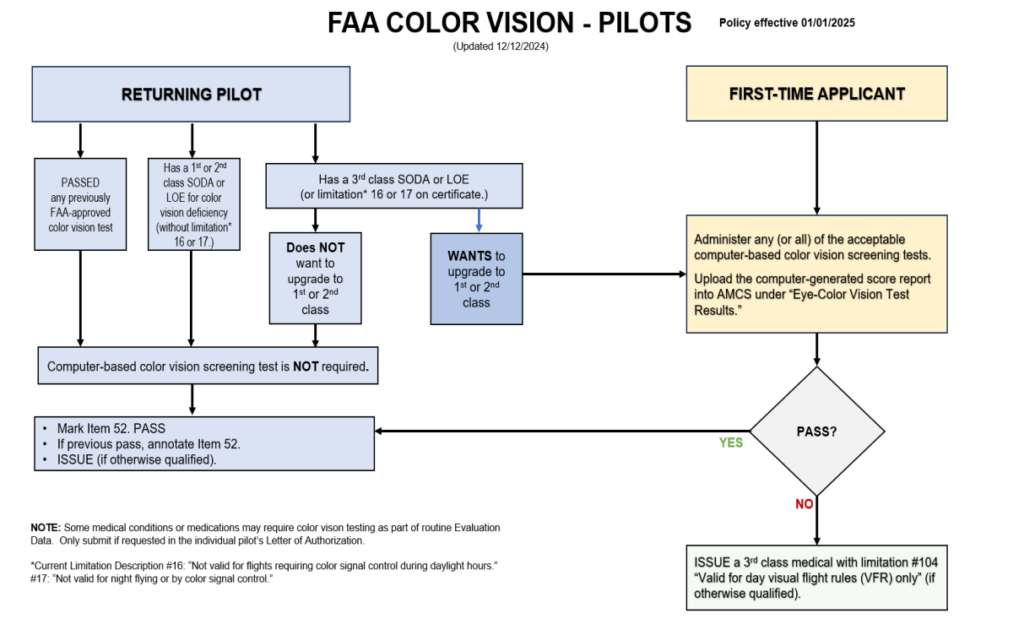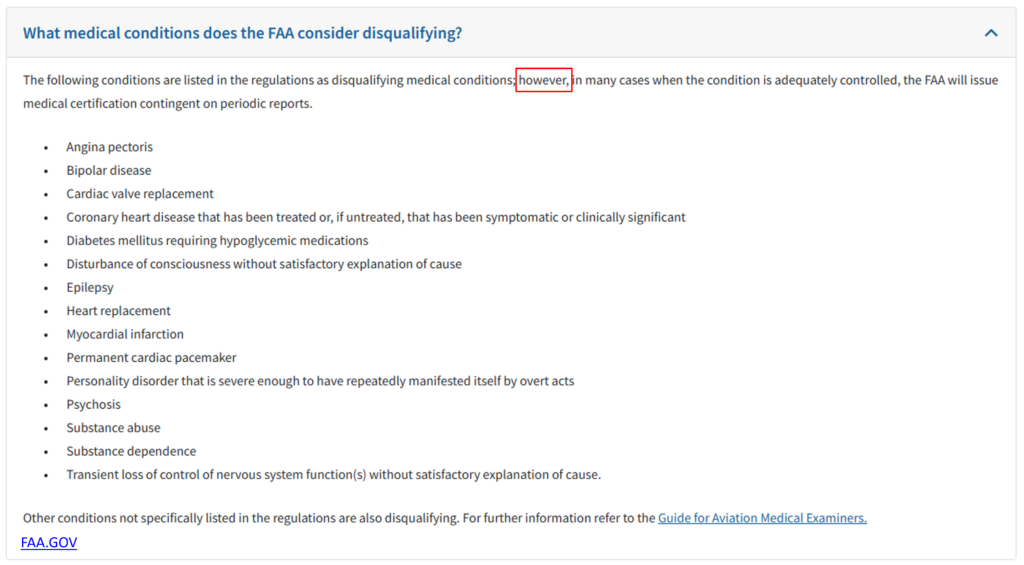Becoming a helicopter pilot involves meeting FAA medical requirements, but the process can seem daunting if you’re unfamiliar with it. In this guide, we’ll break down the types of medical certificates, what they involve, and how you can navigate the process—whether you’re just starting or managing a specific medical condition.
Don’t like reading? Watch the video below:
Types of FAA Medical Certificates
The FAA offers three main classes of medical certificates, depending on the type of flying you plan to do:
- First Class Medical Certificate
- Required for airline pilots or Part 121 operations.
- Renewal: Every 6 months if you’re over 40, and every 12 months if you’re under 40.
- Pilots over 40 must complete an ECG annually, and a first-time ECG is required at age 35.
- Not usually required for helicopter pilots, but some contract customers may require it or if you are flying large passenger helicopters (like in Gulf of Mexico oil and gas support)
- Second Class Medical Certificate
- Necessary for most commercial operations.
- Renewal: Annually, regardless of age.
- We require this of our instructors so they can do other flight work for the school than just instructing.
- Third Class Medical Certificate
- Required for private pilots, recreational pilots, and flight instructors.
- Renewal: Every 5 years if under 40, and every 2 years if over 40.
- BasicMed Option
- Allows non-commercial flying for aircraft with no more than 12,500 lbs. and a maximum of 7 seats with some other restrictions.
- Requirements:
- Valid driver’s license.
- Initial exam with any physician using the Comprehensive Medical Examination Checklist (CMEC).
- Free online course every 2 years and a checkup every 4 years.
- Perfect for non-commercial pilots and CFIs who meet these criteria.

No Medical? No Problem (to Start)
If you’re just exploring flying, you do not need a medical certificate to:
- Take a discovery flight.
- Fly with a certified flight instructor (CFI) for an introductory experience.
This is a great way to experience helicopter flying without immediately committing to the medical exam process. However, if you plan to pursue a career as a helicopter pilot, make sure you can obtain at least a Second Class medical certificate before investing in flight training—especially if taking out loans or making a significant financial commitment.
What Does the Medical Exam Involve?
The FAA medical exam covers:
- Vision – Distant, near, and color vision tests.
- Hearing – Ability to hear a normal conversation at 6 feet.
- Cardiovascular health – Blood pressure check; ECG required for First Class at age 35+.
- Neurological & mental health – Reflexes, coordination, medical history review.
- Medications & substance use – Certain medications and past substance abuse may require Special Issuance.
Find the full details in Part 67.
Color Vision Test Changes January 2025
The FAA recently updated the color vision test, making it more comprehensive and less able to be memorized. Check out Aviation News Talk Episode 359 for details.


Special Issuance for Medical Conditions
If you have a medical condition or previous injury, you may qualify for a Special Issuance certificate. Here’s what you need to know:
- Special Issuance may require additional paperwork and documentation.
- Discuss your condition with an Aviation Medical Examiner (AME) before applying.
- Common conditions like color blindness or heart issues are reviewed individually.

Pro Tips for Your Medical Exam
- Prepare in advance: Get a vision check before scheduling your FAA medical exam – to avoid a fail.
- Consult your AME: Discuss any health concerns ahead of time to avoid unnecessary denials.
- Bring documentation: If you have prior diagnoses or test results, have them ready.
- Avoid dishonesty: Be truthful, especially if claiming Veteran disability benefits (the FAA & VA databases have been cross-checked to identify pilots who have inconsistencies).
More Info
- FAA Medical Classes
- Find an Aviation Medical Examiner (AME)
- Part 67 Medical Standards
- What medical conditions does the FAA consider disqualifying?
- AOPA BasicMed
- AC 61-1 BasicMed
- Aviation News Talk Podcast Episode 359 – Color Blindness Changes
Final Thoughts
Staying healthy is key to maintaining your FAA medical certificate. Whether you’re a beginner or an experienced pilot, knowing your medical requirements ensures a smoother path to your aviation goals.
For more information, visit the FAA Medical Standards (Part 67) or use the AME Locator Tool to find an examiner near you.
Feedback
We Want Your Feedback! How was it getting your medical? Did you have any issues? Have any tips for others? Send your questions and feedback to the podcast, and we might feature it in a future episode!

